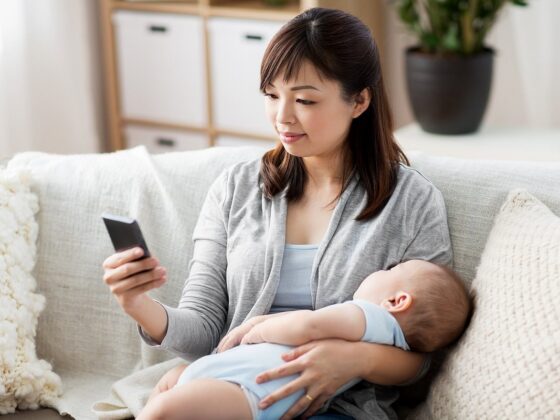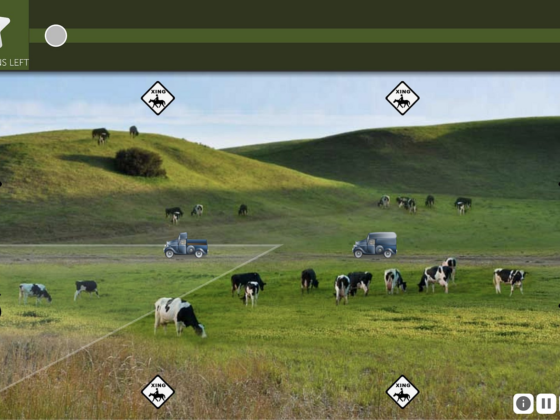If you ask someone who hasn’t been vaccinated yet the reason for their hesitancy, you’re likely to get a lot of different answers. But typically, whether their hesitancy is based on medical questions, political distrust, or both, you’ll eventually hear, “I’m just not sure.”
Fair enough. Not being sure of something should kick-in our instincts to raise questions.
Which group expresses the least amount of “I’m not sure” when it comes to the COVID-19 vaccine? Doctors.
It may have something to do with their access to scientific information about the virus and the vaccine, and seeing up close the devastation COVID-19 has caused.
A survey of nearly 3,000 physicians shows that 95 percent had already taken the vaccine or planned to receive it. It may have something to do with their access to scientific information about the virus and the vaccine, and seeing up close the devastation COVID-19 has caused. Vaccination rates drop to just over 50 percent for frontline health workers, which includes nursing home aides, hospital housekeeping staff, and outpatient clinic staff. But among five top U.S. hospitals rated by U.S. News & World Report, staff vaccination rates are at 80 percent or greater, according to Becker’s Hospital Review. These surveys were conducted in February and March when vaccine supply was still limited, so rates have likely risen since then.
Proof answers doubt
It’s not that doctors are without doubts or questions. Their training, in fact, teaches them to look for clinical proof, and to carefully scrutinize how those proofs were arrived at. Dr. Eugenia South, an assistant professor of emergency medicine at the University of Pennsylvania, wrote that she had doubts in early December about the vaccine. “I suppose I am wary of the very system to which I have dedicated nearly two decades of my career.” As an African-American, there was yet another layer to Dr. South’s hesitancy. Disparities in health treatment and outcomes for African-Americans heightened her reticence. “I reflected on this complex relationship between racism and mistrust as I considered whether to take the COVID-19 vaccine.”
A graph showed the rising number of COVID-19 cases in the placebo group compared to the tiny number of cases among those who received the vaccine. “I still trust rigorous science,” wrote Dr. South.
So Dr. South set out to do what she was trained to do: she educated herself. She researched the mRNA technology and learned it had been under development for decades, so, no, it was not unstudied or rushed. She was encouraged that a black scientist was at the center of Moderna’s vaccine development, and that black physicians had participated in the clinical trials. But it was a visual from the Pfizer clinical trial report that prodded her scientist side to the forefront. A graph showed the rising number of COVID-19 cases in the placebo group compared to the tiny number of cases among those who received the vaccine. “I still trust rigorous science,” wrote Dr. South.
Finally, her concerns about long-term side effects were addressed by the research that shows adverse reactions to vaccines most commonly occur in the first weeks after vaccination. “I weighed these unknowns against the risks of contracting the coronavirus – death, a prolonged hospital stay or, perhaps most convincing to me, the increasingly documented lingering, and not rare, long-term complications from COVID-19 itself: brain fog, difficulty breathing, extreme fatigue, depression.”
“The choice became clear. I would get the vaccine,” concluded Dr. South.
Checking in with the doctors – wherever they may be
Because the vaccine has been most readily available at mass vaccination sites or pharmacies, doctors haven’t been highly visible in the vaccination process. But they urge their patients to get the vaccine when they have the opportunity. Dr. Steven Yarows, a doctor practicing in Chelsea, Michigan, tells his vaccine hesitant patients this: “Every doctor in this facility has gotten the vaccine because they felt it was safe. They did it for themselves and their family and we did it for your safety too.”
“Every doctor in this facility has gotten the vaccine because they felt it was safe. They did it for themselves and their family and we did it for your safety too.”
Dr. Steven Yarows, Chelsea, Michigan
But what about those who don’t have a trusted physician to ask? Or those who prefer their own research? When this is the case, it’s especially easy to rely on the wild west of the internet, where every theory has its proponents. Still, even in these days of polarization and division, experts such as those from the Centers for Disease Control and Prevention (CDC), command respect.
It wasn’t until Dr. Tom Frieden, a former director of CDC who was prominent in the 2014 Ebola epidemic response, spoke via Zoom to a focus group of vaccine hesitant Trump voters that their opinions started to shift. Frieden listened to the doubts expressed by the participants. Their early comments about the vaccine included words such as “rushed,” “unproven,” “don’t hold my freedom hostage,” and “untrustworthy.”
No counter attack. Just knowledge.
Frieden didn’t mount a counter attack. He offered medical knowledge. He calmly explained what he knew:
“One, if you get infected with the virus, it will go all over your body and stay there for at least a week and be much more likely to cause you long-term problems than the vaccine.
“Two, if you get the vaccine, it will prime your immune system, but then the vaccine is gone. It will not be with you anymore.
“Three, more than 95% of the doctors who have been offered this vaccine have gotten it as soon as they can.
“Four, the more we vaccinate, the faster we can get back to growing our economy and getting jobs.
“And five, if people get vaccinated, we’re going to save at least 100,000 lives of Americans who would otherwise be killed by COVID.”
Science yes, government no
Despite their earlier misgivings, this focus group heard Dr. Frieden as a trusted expert. One participant, who worked as a pharmacist and trusted other vaccines, identified the government as her biggest source of doubt. “What I don’t trust is the government telling me what I need to do when they haven’t led us down the right road, in my view, to this day. So if I can set the government aside and just look at the science and think about it from a medical standpoint, I think I’m OK.”
Interestingly, hearing former New Jersey governor Chris Christie speak about his experience with COVID-19 did seem to make a strong impression on the focus group. Christie even tapped into the group’s anti-politician bent, saying, “Politicians screw up almost everything we touch. We really do.”
[Former New Jersey Governor] Christie pointed out that what we may think is safe, actually isn’t. “I went into what was supposed to be the safest place in America, the White House.”
Christie started out by pointing out that what we may think is safe, actually isn’t. “I went into what was supposed to be the safest place in America, the White House.” Christie described how, even with a daily testing routine, six out of seven people who gathered to help the President prepare for a debate came down with the virus. Christie was the sickest among the group, requiring a one-week hospitalization. But it wasn’t just the older, health-compromised ones that became gravely ill. Hope Hicks, a fit and healthy 30-something who ran four to five miles a day, said this was the sickest she’d ever been, according to Christie.
He then told them about two other people in his family, cousins, who “felt OK in the beginning,” but ended up dying. One was a smoker, but the other had no preexisting conditions and was in great shape. “In fact, was still working every day as an active longshoreman on the docks in New Jersey.” Christie had their attention. “…the point I want to try to make is how random it [COVID-19] is.”
Find your trusted sources
So how do people get to the point where they can shake that sense of “I’m just not sure” that keeps them – and the rest of society – in a state of limbo, or worse, allows COVID-19 and its variants to surge again?
As one focus group participant put it: “we want to be educated, not indoctrinated.”
In a word, it’s about trust. Who do we trust? What sources of information aren’t tainted because they’re perceived as pushing us into thinking one way or another? As one focus group participant put it: “we want to be educated, not indoctrinated.” Now that vaccines are available to all, reaching out to the vaccine hesitant with the voices of doctors and those with real-life experiences with COVID-19 can be effective – because that’s where trust already exists.



